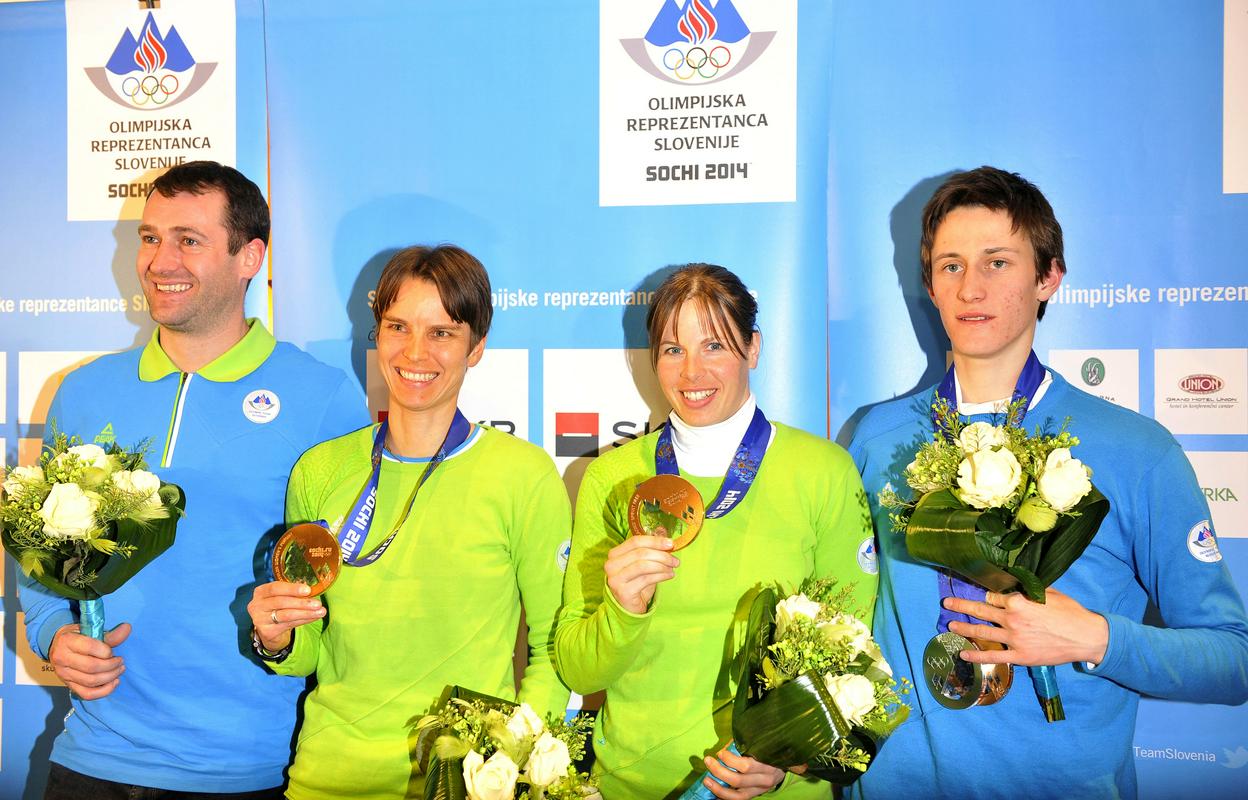
Slovenia invests a lot of funds into educating the personnel, into planned expert work. A lot of Slovenian experts are part of other teams, too. Good results are a consequence of good and quality work at a very wide area of sports. This needs to show somewhere, and is measured by results in sports.

In Sochi the Slovenian Olympic team set a new record of medals in Sochi, a feat which will be difficult to outdo. Rankings among the top three best competitors do not have a long tradition in Slovenian winter sports. However, the current generation is not only more successful on sports events than their predecessors, but they also appear to be more confident and relaxed before their performances.
Athletes pay more attention to being well prepared and include experts from a variety of fields. Are sports psychologists being more frequently sought by the athletes, too?
More and more athletes turn to expert help in a wide spectre of areas, not just psychology. Athletes create teams of experts where each has their own responsibilities, one for physical preparation, another for nutrition, a third for psychological preparation … This is what brings good results. Consequently, trainers are less overloaded, since they don’t need to go into the details of all sports segments and can focus on the training of technique and tactics. Athletes increasingly point out teams, the entire group of experts that work with them, not just individuals, when giving credit for their success. Psychologists are becoming a very recognisable part of these teams.
Judging by the comments of Slovenian best athletes, it appears they’re a bit more confident than their predecessors. On the other hand, it seems that North American athletes in particular are a bit overconfident. Is this a special preparation for big competitions or some sort of a national characteristic?
Americans are raised by the motto ‘Anything is possible’. They have a huge number of people, and when several thousand people take part in a certain discipline, it’s evident that at least three or four of them will be incredibly successful in it and that at least one of them will have won top places in the most important competitions. Besides, Americans learn competing the hard way. Any competitor that loses a place in the team knows there are at least ten other athletes waiting for the spot.
In Slovenia there are few top athletes, which is why we keep an eye on them and protect them. However, we don’t see the larger crowd that didn’t make it to the top, and there may be extremely sad stories to be found in this crowd. The disappointments aren’t so huge in Slovenia, since we put much more effort into taking care of every athlete. We try harder in eliminating the errors that the athletes make, and we focus on the good as well as the bad. We’re used to critique, and both advantages and disadvantages are required for progress.
Nonetheless, what’s also present in Slovenian sports is complaints, excessive doubts about one’s own abilities and looking for excuses in the alleged smallness …
It is perhaps a characteristic of Slovenians to be very prone to perfectionism, which is why be blow small mistakes out of proportions sometimes, making a mountain out of a molehill. Exaggerated self-criticism may cause a person to doubt their ability to do something. But we’re used to achieving results with hard work, and that is the road to success. A well-balanced self-criticism is typical of successful athletes – they know how to analyse their actions as well as how to eliminate their mistakes and imperfections.
The top athlete’s age limit is rapidly rising in many sports. Is better financial as well as psychophysical condition of athletes also a cause of this?
In Slovenia the current position of athletes is somewhat difficult due to the economic situation, but athletes have found they can make a living with the help of government support of sports, since they can be employed in the army or the police force and still focus on sports. 20 years ago it was unimaginable for 25-year-olds to still be a complete financial burden of their parents. On the other hand, experience has shown that with good physical preparation and sensible training the career can be prolonged into late thirties or even forties, even in sports when this used to be very rare.
A so-called ‘bridging fund’ that would ease retiring from professional sports, is to be founded for Slovenian athletes with the help of politicians. Is the end of one’s career a huge problem for athletes?
Ending one’s sports career is often quite problematic. Athletes who had not obtained any formal education or had not thought about what their life would be like once their sports career was over, spend a lot of time and energy on determining what could their do with their lives besides sports. This is why it’s important to discuss how to help athletes when their careers in sports come to an end. This kind of a fund would a welcome initiative, especially for athletes whose career ends abruptly, due to injuries.
Slovenia invests a lot of funds into educating the personnel, into planned expert work. A lot of Slovenian experts are part of other teams, too. Good results are a consequence of good and quality work at a very wide area of sports. This needs to show somewhere, and is measured by results in sports.

































































